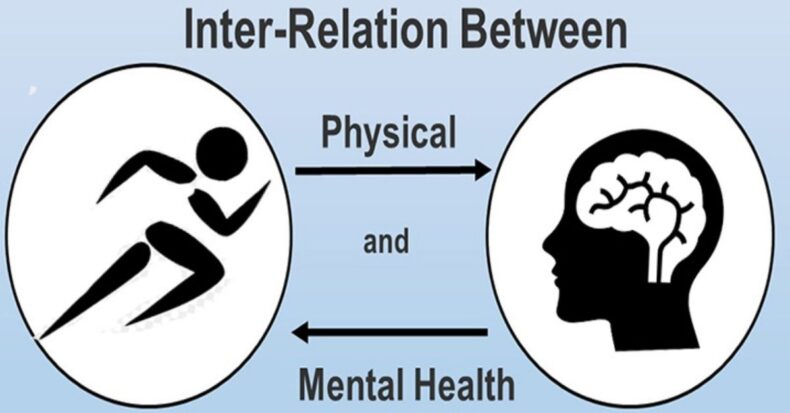Mental and physical health are equally important components of overall health. For example, depression increases the risk of many physical health problems, particularly stable conditions like diabetes, heart disease, and stroke.
The mind and body are often viewed as separate; however, mental and physical health are closely related. Good mental health can positively affect our physical health, and in return, poor mental health can negatively affect our physical health.
When we exercise, our body releases feel-good chemicals in the brain, significantly improving our mood. These chemicals – or endorphins – can also help with concentration, improve sleep and help you to feel more confident.
Definition of Mental Health and Physical Health
What is Physical Health?
Physical health represents one dimension of total well-being. The term refers to the state of your physical body and how well it’s operating.
What is Mental Health?
Mental health includes our emotional, psychological, and social well-being. It affects how we think, feel, and act. It also helps determine how we handle stress, relate to others, and make choices.
Mental health is essential at every stage of life, from childhood and adolescence through adulthood.
How Does Mental Health Relate to Physical Health?
Poor mental health is a risk factor for chronic physical conditions. People with severe mental health conditions are at high risk of experiencing chronic physical conditions. People with chronic physical conditions are at risk of developing poor mental health.
Mental health and physical health are very closely connected, and mental health plays a significant role in your ability to maintain good physical health.
Mental illnesses, such as depression and anxiety, affect your ability to participate in healthy behaviours; this can result in problems with physical health, such as chronic diseases, and can decrease a person’s ability to participate in treatment and recovery.
Issues with mental health can have many different symptoms, just like issues with physical health.
For physical problems, most people go to the doctor and get a check-up. They have their blood pressure, temperature and weight measured. They have blood drawn to check for cholesterol, blood sugars, thyroid, iron levels, electrolytes and other measures.
However, most people don’t go to a mental health professional for a mental health exam. In many cases, people only seek out a mental health professional after a crisis has occurred.
How to Take Care of Your Mental and Physical Health

To improve our general well-being, one should take care of both our physical and mental health. Here are some ways to take care of yourself physically and mentally:
- Get regular exercise. Exercise is vital for keeping fit, but it can also help improve your mood. A daily 10-minute walk may increase your mental alertness leaving you energetic and in a good mood.
- Eat a proper diet. A diet high in fruits and vegetables and low in processed sugars or fats can make you feel better physically and mentally. Consider working with a qualified nutritionist to help you create a diet plan customized according to your needs.
- Avoid alcohol and drugs. Although drinking and smoking may make you feel better in the short term, they can harm both your physical and mental health.
- Get enough sleep. A good night’s sleep is around seven to nine hours for adults. You can also take a 30-minute nap during the day to feel more alert.
- Try relaxation techniques. Meditation, deep breathing, and focusing your thoughts can all help when you are feeling stressed.
- Develop good mental practices. Try to focus on positive emotions and events rather than negative ones.
- Seek help from others. Talking with friends or family members can help you feel less accented. Getting others to help with difficult situations can also reduce the burden you feel.













